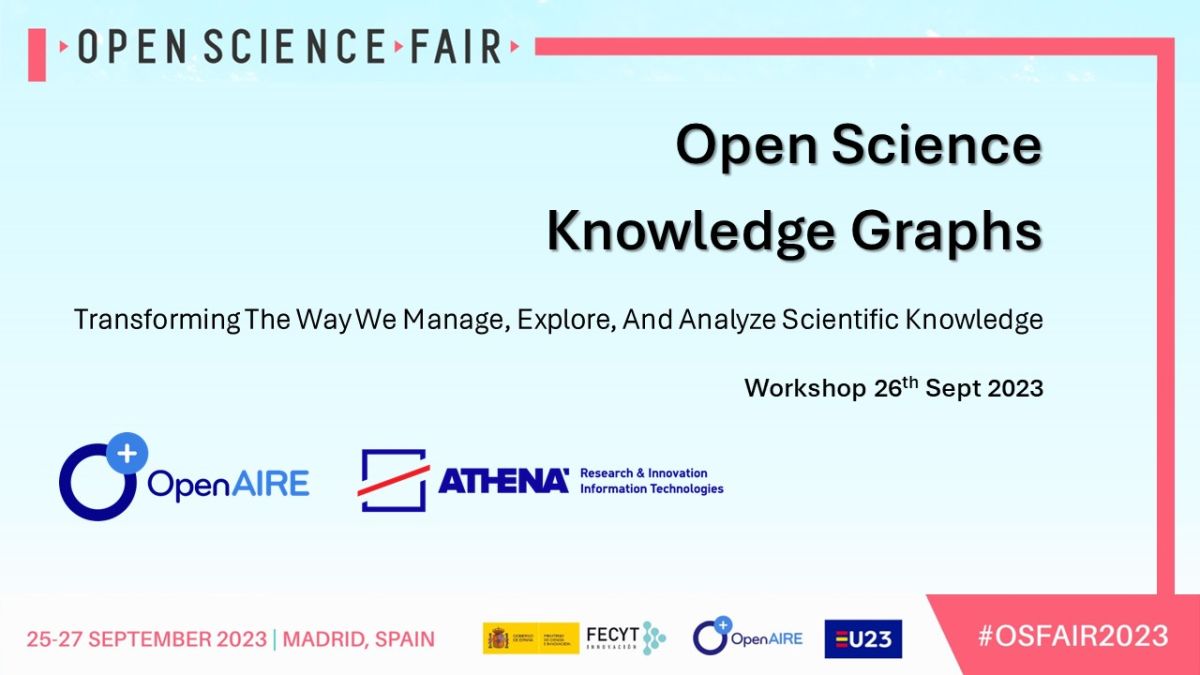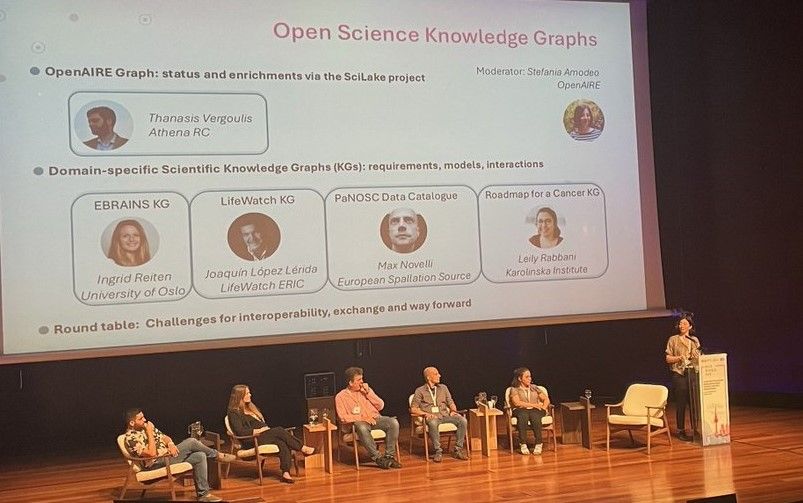Open Science Knowledge Graphs: transforming the way we manage, explore, and analyse scientific knowledge
Scientific Knowledge Graphs (SKGs) are of great value to the research community in converting data into knowledge. In a recent workshop at the Open Science Fair in Madrid, experts from various disciplines came together to discuss the potential and challenges of SKGs. This blog post highlights the key insights from the workshop, including the presentations, discussion highlights, and the next steps in advancing SKGs.

Presentations
The workshop featured five speakers who presented compelling cases of SKGs and their applications in different domains. Thanasis Vergoulis from Athena RC discussed the status of the OpenAIRE Graph and its enrichment through the EU SciLake project. Ingrid Reiten from the University of Oslo highlighted the synergies between the EBRAINS data and knowledge service and SciLake, specifically in the neuroscience research domain. Leily Rabbani from the Karolinska Institute shared the roadmap for building a cancer knowledge graph through SciLake. Joaquín López Lérida from LifeWatch ERIC introduced the LifeBlock tool for the construction of SKGs for the biodiversity research domain. Finally, Max Novelli from the European Spallation Source presented the PaNOSC data portal for the photon and neutron community.
All the presentations are accessible on Zenodo: https://zenodo.org/record/8402580
Discussion Highlights
The round table discussion provided valuable insights into the challenges and potential of SKGs. Participants actively engaged with the speakers. An online survey was conducted to gather participants' roles, main uses of SKGs, and suggestions for improvement. Some notable highlights from the discussion include:
- SKGs enhance research productivity and enable quicker translation of hypotheses into results. They serve as a foundation for powerful tools that aid researchers and stakeholders in making informed decisions based on factual information.
- SKGs catalyze the development of services for advanced knowledge extraction and exploration. By leveraging the interconnectedness of data, SKGs enable researchers to uncover hidden relationships and patterns, leading to new discoveries and insights.
- Interoperability between graphs is a significant area of progress. Efforts are being made to ensure that SKGs from specific domains can seamlessly integrate and exchange information with cross-domain graphs, like the OpenAIRE Graph, fostering interdisciplinary research.
- Incorporating sensitive data into SKGs presents a challenge. However, blockchain technology offers a promising solution by providing a secure and transparent framework for managing sensitive information while maintaining data integrity and privacy.

Next Steps
Building on the momentum of the workshop, the participants identified key next steps to further advance SKGs. These steps include:
- Exploiting the synergies between the different initiatives presented during the workshop to create domain-specific, interlinked SKGs.
- Addressing various challenges in delivering high-quality SKGs. These include:
- ensuring broad coverage of scientific knowledge,
- promoting interoperability between domain-specific and cross-domain SKGs,
- ensuring long-term sustainability,
- improving the accuracy and reliability of data sources,
- incorporating multilingual content,
- enabling computational reproducibility,
- adopting good curation practices for domain-specific SKGs.
The scientific community can harness the full potential of SKGs by pursuing these next steps, transforming the way we discover and assess scientific knowledge.